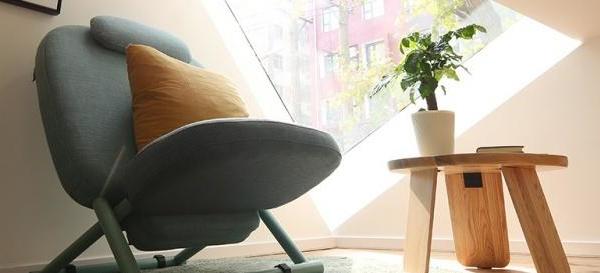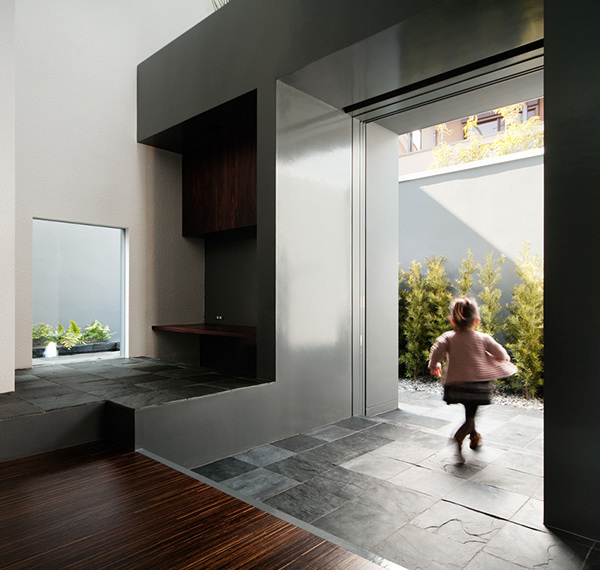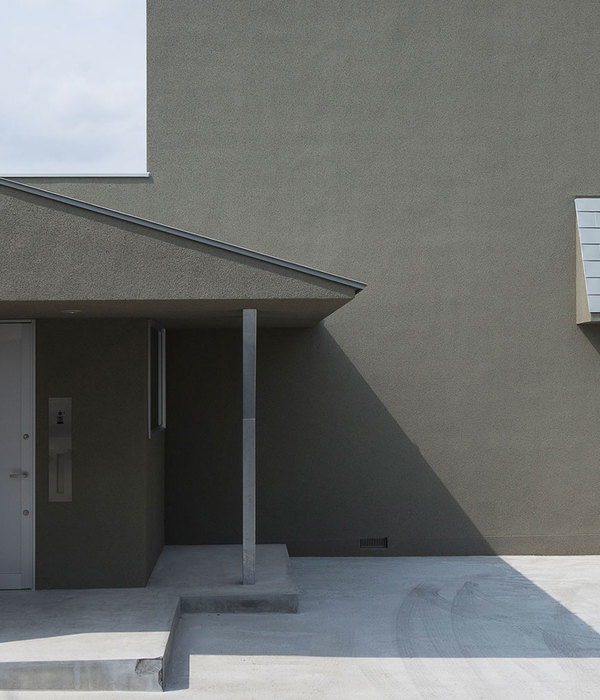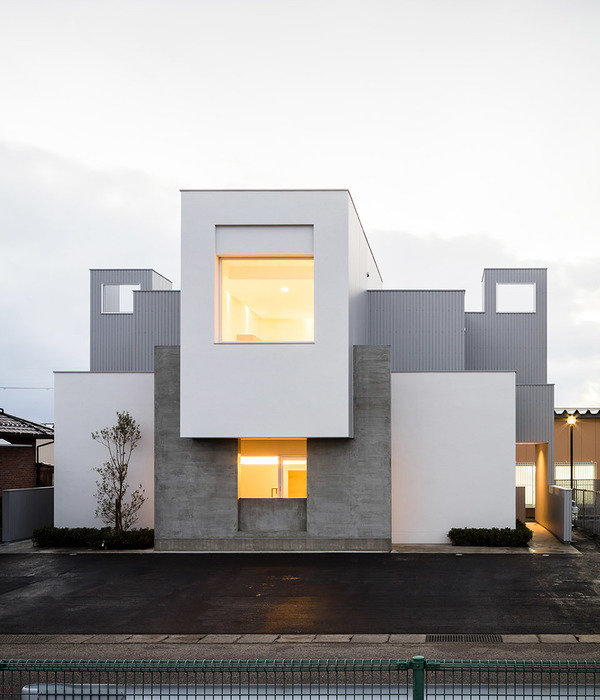·室建筑事务所(FujiwaraMuro Architects),总部位于日本的大阪,由创始人藤原慎太郎(Shintaro Fujiwara)和室喜夫(Yoshio Muro)共同成立于2002年。
长期以来,工作室主要涉及住宅、别墅、办公空间、商业零售等领域的设计项目。
FujiwaraMuro Architects, based in Osaka, Japan, was founded in 2002 by founders Shintaro Fujiwara and Yoshio Muro. For a long time, the studio mainly involved in residential, villa, office space, commercial retail and other fields of design projects.
藤原·室建筑事务所善于创造出体现客户真实愿景的、具有趣味性的和多维度的空间,其独特的工作方法和设计理念成为他们作品标志性的符号。
空间随着时间的变化而呈现不同的景色,
那么居住者的生活则会变得趣味横生,他们凭借着近20年的实践经验,使这种理念主张日趋成熟。
Fujiwara Studio is good at creating interesting and multi-dimensional Spaces that reflect the real vision of clients. Its unique working methods and design concepts have become the iconic symbols of their works. In the perception of architects, space presents different scenery with the change of time, so that the life of residents will become interesting. With nearly 20 years of practical experience, they make this concept and proposition mature.
Shintaro Fujiwara)1974年出生于大阪。
1997年毕业于近畿大学理工学院的建筑系,1999年取得研究生学位。
“有趣的空间”是他一贯的设计倡导,并解释为,“即便是普通的房屋格局,居住也绰绰有余;
哪怕是店铺,只要摆上美观的家具和精心
的照明设计就会变得与众不同。
但是,当街头巷尾到处矗立着廉价的房屋时,廉价的建筑设计自然是不被需要的。
Shintaro Fujiwara was born in Osaka in 1974. He graduated from the Department of Architecture at Kinki University in 1997 and received his masters degree in 1999. Interesting space is his consistent design mantra, explaining that even the ordinary house pattern is more than enough to live in; Even the shop, as long as the beautiful furniture and careful lighting design will become different. But when there are cheap houses in the streets, cheap designs are not needed.
Yoshio Muro)1974年出生于爱知县名古屋,与藤原慎太郎是同届校友。
室喜夫来说,体现于跟客户的深度沟通和交流之中,他说,“在接受建筑委托时,客户有着各种各样的自我诉求,可能是美丽
的景色,可能是舒适的心情,也可能是功能的客观需要等等。
”这个沟通的过程使他感受到设计的快乐。
Yoshio Muro was born in Nagoya, Aichi Prefecture, in 1974 and went to the same school as Shintaro Fujiwara. For him, Happy space is reflected in the deep communication and communication with clients. He said, When accepting architectural commissions, clients have various self-appeals, such as beautiful scenery, comfortable mood, objective needs of functions and so on. This process of communication made him feel the joy of design.
当不同客户的各种诉求浮现于室喜夫的眼前时,他都会积极地探索和思考建筑的意义所在,关心与下一个时代息息相关的新的生活方式和自我语言表达的独特性。
“快乐”这个词,不同的人有不同的理解,他怀着对建筑的巨大热忱,同时也十分重视和塑造生活在建筑空间之中的居住者的“快乐”。
When various demands of different clients appear in front of him, he will actively explore and think about the significance of architecture, and care about the new life style and the uniqueness of self-expression closely related to the next era. Different people have different understandings of the word happiness. He has great enthusiasm for architecture, and also attaches great importance to and shapes the happiness of the occupants living in the architectural space.
Yinjispace:请问你们热爱建筑设计的理由是什么?
藤原・室:当你发现没有想象过的生活方式时,往往会觉得很有趣。因此,在没有经验的有特色的用地上进行建筑,也会让我们感到有趣。我们乐于创造出令人感到有趣的空间。
Yinjispace:如何理解有趣的空间的?
藤原・室:对我们来说不厌倦、不中断、有变化的空间就是有趣的空间。
Yinjispace:请问如何看待风景和建筑的关系?
藤原・室:我们认为自然有各种各样的阶段,建筑参与了其中一部分的规模。
Yinjispace:让住宅变得不寻常的方法是什么?如何将空间折叠起来,以设计的角度扩展一个较小的空间呢?
藤原・室:在设计中,去捕捉细节是很正常的。但是对每个家庭产生影响的是多个细节的组合,通过多个细节的组合能够发现许多不寻常的瞬间。对于空间的安排也是如此,需要我们去发现这些组合。我们也是为了探索更多这样的组合而设计。
Yinjispace:怎样为建筑拓宽更大的可能性,设计的细节是什么?
藤原・室:如果能够了解详细的手法,原先认为在不同的空间才能实现的事情,其实在一个空间内就可以完成。事实上,比起建立在一个大的空间里,分割成一个个小的空间来看待会更好,这些都有助于扩大建筑的可能性。
Yinjispace:请问平时你们是怎样在生活中捕捉灵感的呢?“快乐”是你们自身的品质吗?
藤原・室:不是去看特别有名的建筑,而是在普通的生活中(通过阅读、听音乐)可能会想起什么,自己不会刻意去寻找灵感。
一般,我们的灵感在现场。
即使是同样的细节,根据现场的不同也会有不同的解释。
对一个细节的多种解释,会对一件事持有多种视角。
关于业主的评论、生活感、用地等,超越表面的感受会成为灵感。
另外,所谓快乐,对于孩子来说,爬到稍微高一点的地方,在建筑物里转来转去,进入狭窄的地方等是快乐的。
这大概多少也适用于成年人,是我们想从建筑角度深入思考的事情之一。
图片版权 Copyright :FujiwaraMuro Architects
{{item.text_origin}}












